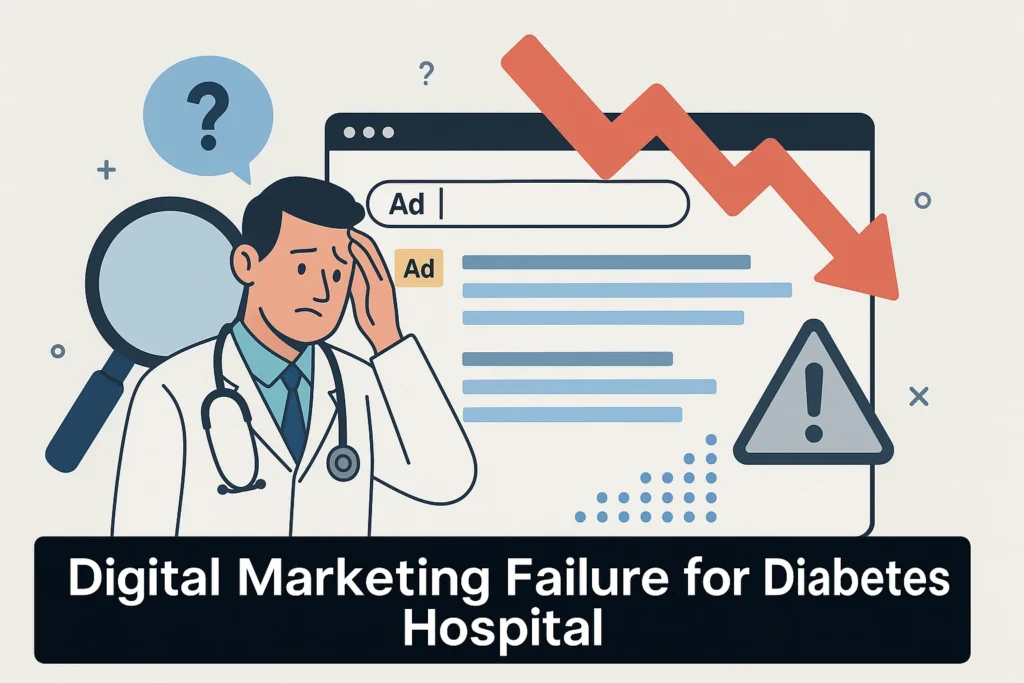
Case Study: Digital Marketing Failure for a Diabetes Hospital – Part 1

Case Study: Digital Marketing Failure for a Diabetes Hospital
In this case study on digital marketing failure for a diabetes hospital, we highlight how targeting the wrong keywords led to poor lead generation.
Lessons in Keyword Targeting
Understanding the Gap Between Doctors and Digital Marketers
In the world of healthcare, doctors are experts in treatment. However, when it comes to digital marketing, the approach needs to be different. Medical professionals often use technical language. But potential patients—especially in India—don’t.
We faced this challenge while handling a diabetes hospital’s campaign. The hospital insisted we use doctor-level terminology in the keywords. Although well-intentioned, this direction led to an unexpected failure.
Keyword Targeting Missteps: What Went Wrong?
From the start, we suggested researching customer search behavior. However, the client insisted on using technical terms like “endocrinology-based complications” and “glycaemic control.” These terms might resonate with medical professionals, but not with everyday people seeking diabetes care.
Instead, most users search with terms like:
- “Best sugar hospital near me”
- “Treatment for diabetes”
- “How to control sugar levels”
- “Sugar problem solution”
Using doctor-preferred keywords led to zero leads. We anticipated this issue and flagged it, but our recommendations weren’t considered at the initial stage.
The Importance of Customer Centric SEO in Healthcare
Effective digital marketing starts with understanding the customer. Patients do not speak in medical terms. They search using simple words. Our role as marketers is to bridge this gap.
When keyword research ignores user intent, campaigns fail. That’s exactly what happened here. Though the client wanted to focus on specific medical causes, those terms did not align with how people search online.
Data Doesn’t Lie: Keyword Performance Breakdown
Technical keywords (doctor terms):
200 impressions, 3 clicks, 0 leadsLayman keywords (user-friendly terms):
5000 impressions, 120 clicks, 10+ leads (from our test campaign) Clearly, customer-friendly keywords perform better. They have high search volume and match the user’s intent.Conclusion: A Campaign That Missed the Mark
This case study highlights a common mistake in healthcare marketing—relying too heavily on internal expertise instead of user intent. When campaigns are built on keywords that patients don’t use, even the best intentions can lead to poor results.
As digital marketers, we are here to bridge the gap between expert knowledge and real-world search behavior. Unfortunately, when our recommendations were overridden, the campaign couldn’t perform. But every setback brings a chance to learn and adapt.
👉 In Part 2, we’ll share how we turned things around by shifting focus to user behavior, simplifying keyword strategy, and rebuilding trust—step by step.
Stay tuned for the recovery plan and key takeaways that can help any healthcare provider avoid similar digital marketing failures.
Contact Us
Interested in optimizing your digital presence? Contact MB Marketing Solutions .
More Interesting Posts

